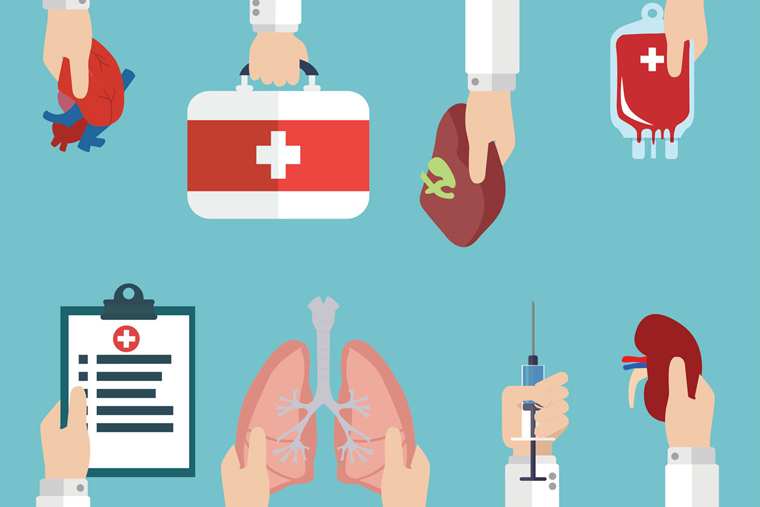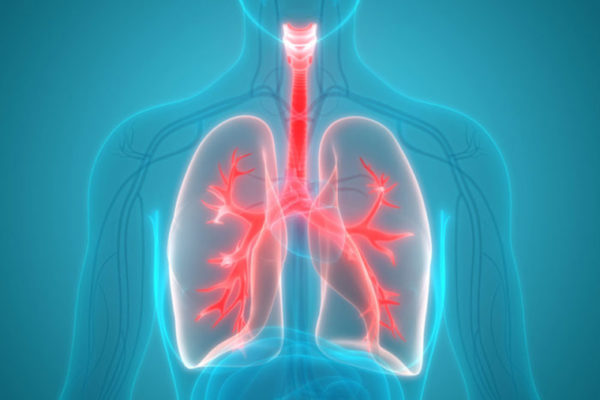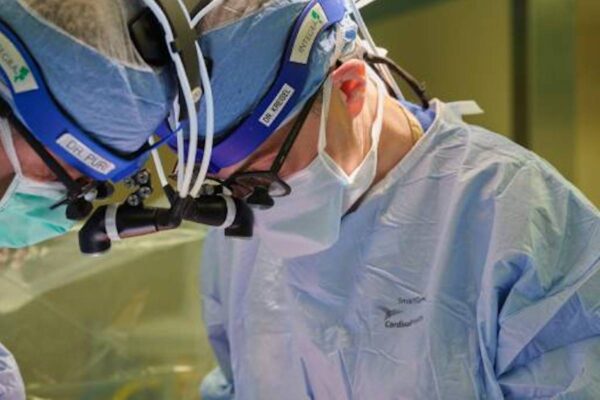Patients who undergo solid organ transplants are at high risk of developing severe COVID-19 infections due to their need to take immunosuppressive medications. These medications, aimed at preventing such patients’ bodies from rejecting transplanted organs, have the unintended consequence of making immune systems more open to the virus that causes COVID-19.
A new multicenter study that includes researchers at Washington University School of Medicine in St. Louis, the Centers for Disease Control and Prevention (CDC), and Vanderbilt University Medical Center has identified a strategy to lessen that risk. The research — published online in The Journal of Infectious Diseases — shows that transplant recipients who receive three doses of a COVID-19 mRNA vaccine have greater protection than that provided with two doses. (The Pfizer-BioNTech and Moderna vaccines are mRNA.)
Currently, three doses are widely adopted for such patients. With increasing evidence of the benefits of additional vaccine doses, the CDC now recommends a fourth dose of the mRNA vaccine for people with moderate to severe immunocompromising conditions, including patients who have undergone solid organ transplants.
“Our research confirms that two doses of a SARS-CoV-2 mRNA vaccine do not provide as much protection against hospitalization in solid organ transplant recipients as compared to those with healthy immune systems,” said Jennie H. Kwon, DO, one of the study’s first co-authors and an assistant professor of medicine at Washington University. “But the good news is that additional vaccine doses appear to significantly increase effectiveness for solid organ transplant recipients.”
The study examined 10,425 patients hospitalized across 21 hospitals in the U.S. Of those, 440 had solid organ transplants, 1,684 had immunocompromising conditions, and 8,301 had healthy immune systems.
Researchers found that a regimen of two doses of the mRNA vaccine was 29% effective at preventing COVID-19 hospitalizations among transplant patients while a three-dose regimen was 77% effective.
“The study’s results indicate that solid organ transplant recipients benefit from three doses of mRNA COVID-19 vaccines and support the CDC’s recommendations for this vulnerable population,” said Kwon, also a health-care epidemiologist at Barnes-Jewish Hospital, where she treats patients.
“We believe these results demonstrate that solid organ transplant recipients remain at risk for COVID-19 despite vaccination, and support the need for continued efforts to mitigate the risk of COVID in this population,” said Wesley Self, MD, one of the study’s senior co-authors and an associate professor of emergency medicine at Vanderbilt.
“Throughout the COVID-19 pandemic, there has been a concern that immunocompromised people, such as those with a solid organ transplant, may not benefit from vaccination as much as immunocompetent people,” Self said. “However, our research illustrates that booster vaccine doses are particularly important for immunosuppressed people.”
The study also points to other measures to reduce the risk of COVID-19 among solid organ transplant recipients, including vaccination of close contacts, individual immune system monitoring, and infection-prevention strategies such as wearing a mask in public spaces and social distancing.
Future studies will examine the effectiveness of the recommended fourth dose; the residual risk of severe COVID-19 among solid organ transplant recipients after four doses; and the durability of protection.
The research is part of the IVY (The Influenza and Other Viruses in the Acutely Ill) Research Network, created in 2019 to study the epidemiology of severe illnesses caused by viral respiratory infections and the effectiveness of vaccines in preventing these illnesses. The network, funded by the CDC and led by Vanderbilt, consists of 21 U.S. hospitals.
Kwon JH, Tenforde MW, Gaglani M, Talbot HK, Ginde AA, McNeal T, Ghamande S, Douin DJ, Casey JD, Mohr NM, Zepeski A, Shapiro NI, Gibbs KW, Files DC, Hager DN, Shehu A, Prekker ME, Caspers SD, Exline MC, Botros M, Gong MN, Li A, Mohamed A, Johnson NJ, Srinivasan V, Steingrub JS, Peltan ID, Brown SM, Martin ET, Khan A, Hough CL, Busse LW, Duggal A, Wilson JG, Perez C, Chang SY, Mallow C, Rovinski R, Babcock HM, Lauring AS, Felley L, Halasa N, Chappell JD, Grijalva CG, Rice TW, Womack KN, Lindsell CJ, Hart KW, Baughman A, Olson SM, Schrag S, Kobayashi M, Verani JR, Patel MM, Self WH. mRNA Vaccine Effectiveness Against COVID-19 Hospitalization Among Solid Organ Transplant Recipients. The Journal of Infectious Diseases. April 6, 2022. DOI: https://doi.org/10.1093/infdis/jiac118
This research was funded by the U.S. Centers for Disease Control and Prevention, grant 75D30121F00002. The REDCap data tool used in this program was funded by Clinical and Translational Science grant UL1 TR002243 from the National Center for Advancing Translational Sciences of the National Institutes of Health (NIH).
Washington University School of Medicine’s 1,700 faculty physicians also are the medical staff of Barnes-Jewish and St. Louis Children’s hospitals. The School of Medicine is a leader in medical research, teaching and patient care, and currently is No. 4 in research funding from the National Institutes of Health (NIH). Through its affiliations with Barnes-Jewish and St. Louis Children’s hospitals, the School of Medicine is linked to BJC HealthCare.



